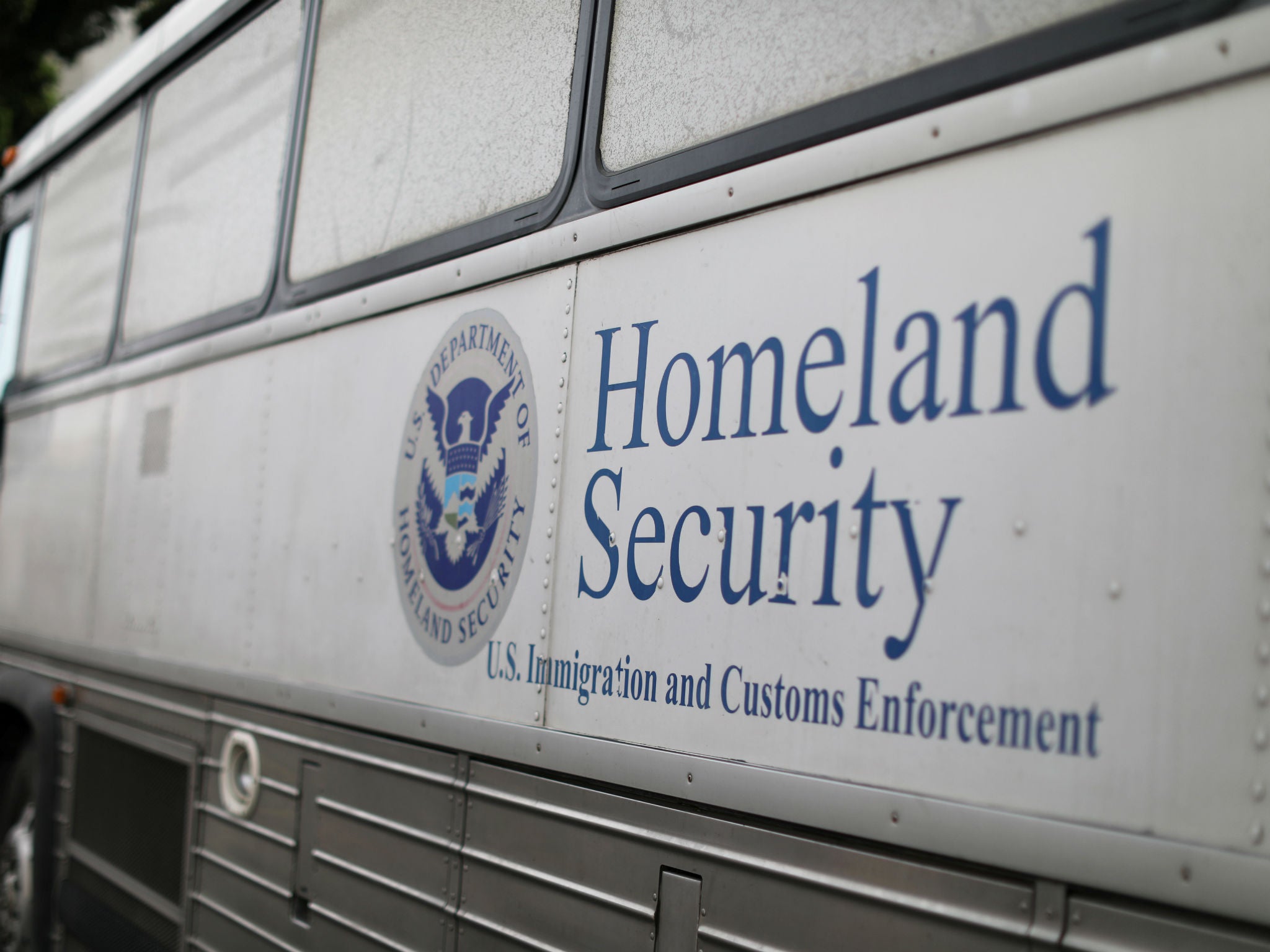Tennessee passes ‘mass deportation bill’ banning immigration sanctuary policies
The state is 'now committed to using state resources and state governments to help fuel mass deportations'

Your support helps us to tell the story
From reproductive rights to climate change to Big Tech, The Independent is on the ground when the story is developing. Whether it's investigating the financials of Elon Musk's pro-Trump PAC or producing our latest documentary, 'The A Word', which shines a light on the American women fighting for reproductive rights, we know how important it is to parse out the facts from the messaging.
At such a critical moment in US history, we need reporters on the ground. Your donation allows us to keep sending journalists to speak to both sides of the story.
The Independent is trusted by Americans across the entire political spectrum. And unlike many other quality news outlets, we choose not to lock Americans out of our reporting and analysis with paywalls. We believe quality journalism should be available to everyone, paid for by those who can afford it.
Your support makes all the difference.Tennessee is set to become the latest state in the US with prohibitions on so-called “sanctuary” policies, which immigrant advocates say serve to cultivate an environment of fear for undocumented immigrants living in American communities.
Governor Bill Haslam is going to let the bill — which also requires local police to comply with US Immigration and Customs Enforcement requests — become law without his signature, even though the state currently does not have any sanctuary cities as a result of a previous law on the subject.
“I think the best thing for the state to do with this decision is to move on from it,” Mr Haslam told reporters on Monday, according to the Tennessean.
The decision was made in spite of criticism on a variety of fronts from stakeholders who say that the law is of questionable constitutional merit, and could have unintended consequences that spreads fear of government entities throughout vulnerable populations in the state.
Among those groups were the Tennessee Immigrant and Refugee Rights Coalition (TIRRC), which called the legislation an “extreme mass deportation bill” because it could compel local law enforcement to work in tandem with federal immigration officials, and bars local police from even informal assurances that they would not question the immigration status of people who call the police, even o report crimes like domestic abuse.
“We fear that the passage of this law will make immigrant communities less likely to call police to report a crime, that it will make it less likely that a parent will get involved in their child’s school if they’re worried,” Stephanie Teatro, the co-executive director of TIRRC, told The Independent.
The measure is similar to at leas two other bills passed by states to limit sanctuary policies and ensure that local police respond to immigration retainer requests from federal officials.
Arizona received nation-wide attention for the passage of an immigration bill in 2010, known as SB 1070, which required police to determine the immigration status of anyone arrested or detained if there is “reasonable suspicion” that they are not in the US legally. That polarising bill was largely upheld by the US Supreme Court.
More recently, Texas passed a sweeping anti-sanctuary bill in order to compel local police to hold people, without a warrant, that the US Department of Homeland Security suspects of violating immigration law.
“We’re seeing Tennessee join these other states in the race to the bottom of immigration policy,” Ms Teatro said. “State’s like Texas and Arizona and Tennessee are now committed to using state resources and state governments to help fuel mass deportations.”
The bill, once law, would pull funding from communities with sanctuary policies until they comply with federal immigration authorities. The bill is broadly written, and notes that a variety of state and local entities — including, for instance, school campus police — could be impacted by the new policies.
Those same entities are instructed to “vigorously pursue all federal moneys” that the state might be reimbursed for complying with federal immigration laws”.
César Hernández, a professor at the Sturm College of Law at the University of Denver, says that the policies, which are ostensibly aimed at reducing the number of undocumented immigrants in any particular community, tend to not result in voluntary removal. The policies spread fear, he said, but generally are not enough to convince people to uproot their lives and find somewhere else to call home.
"We don't have much evidence that that happens," he said. "People have all kinds of reasons to live in a place they've come to call home. Some of that is economic... but some of it is also that its hard to move your children to a new school".
Join our commenting forum
Join thought-provoking conversations, follow other Independent readers and see their replies
Comments